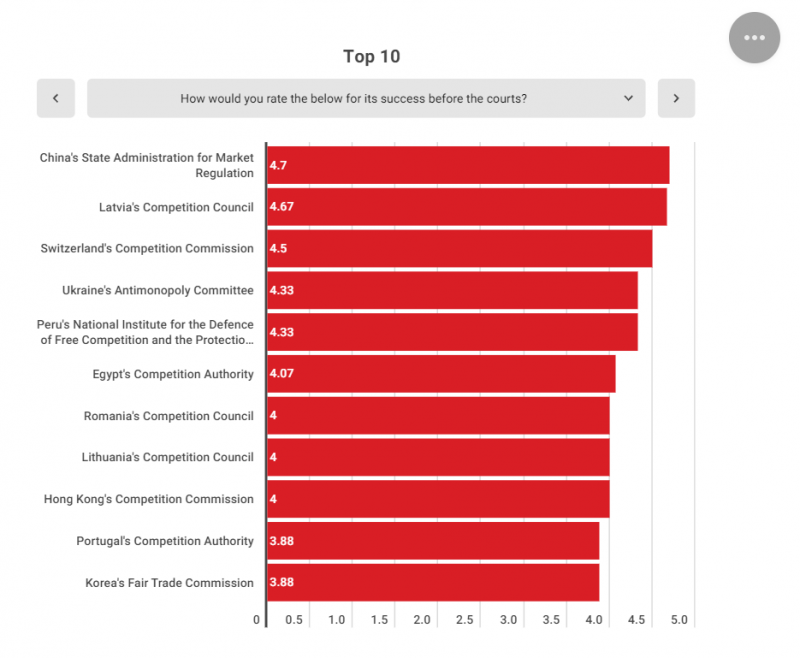For the ninth consecutive year, the Latvian Competition Council has maintained its high three-star rating in the Global Competition Review (GCR), ranking among the world's leading competition authorities. The competition authorities of Singapore, Switzerland, Belgium, Lithuania, Poland and other countries were ranked in the same position as Latvia. There are now more than 140 competition authorities in the world, but only 33 of them are ranked by the GCR.
The 2023 ranking of the world's leading competition authorities highlights that the Latvian Competition Authority “remains an effective national enforcer that does good work despite a modest budget and staff count”.
Three decades ago, a small team started monitoring fair competition in Latvia. Now the authority employs around 50 employees, who last year helped open three new cartel investigations, adopted four infringement decisions, assessed 14 mergers and cleared one merger where the companies complied with certain binding rules.
Juris Gaiķis, chairman of the Competition Council: “It is a great honour for the authority to maintain its position and three stars in the prestigious ranking of competition authorities for nine consecutive years. Three years ago, when I took over the leadership of the Competition Council, there was public concern about the future development of the authority. But in the last three years, the public benefits from the work of the Competition Council have been measured at more than EUR 50 million a year, a record for the last decade and even double what was expected. In recent years, we have also gained more support in the government and Parliament, which has helped us to increase the authority's budget and thus ensure competitive salaries. We have also ensured the development of staff competences, streamlined processes and invested in the technical and technological development of the authority's IT to ensure more effective investigations of competition infringements. The investment in the authority's development and staff development has also significantly reduced staff turnover, which has been a challenge for the authority for many years. This international recognition is now further evidence of the systematic and high quality work and motivates us to continue the ongoing research and initiatives to revitalise fair competition in Latvia to the benefit of all consumers.”
The rating praises the authority's high success rate in defending its decisions in court. Last year, five cases were concluded and the authority's decisions were upheld in all cases. For example, the Moller Group companies ended the proceedings in the Volkswagen car dealers cartel case and paid fines of more than EUR 7 million imposed by the Competition Council to the State budget. The court also upheld the Competition Council's decision on the cartel in the land reclamation sector and the Competition Council's decision to prohibit RIMI from using retail premises in the shopping centre DOMINA Shopping, which had been in litigation since 2017. Once the companies have reached a settlement with the authority or the proceedings have been concluded and the decision has entered into force, the fines imposed must be paid into the State budget. Last year, the State budget was reinforced by more than EUR 9 million.
Latvian lawyers working in the private sector also rated the authority's skills in defending decisions positively, scoring 4.67 out of 5. The Competition Council thus received the second highest score among all the countries ranked in the category “Success before the courts”.
Independent competition law practitioners also rated the ambition of the authority highly (4 out of 5), its ability to promote fair competition on the market through advocacy tools (4 out of 5), the financial and human resources available to the authority and the legal tools to tackle competition infringements positively (3.67 out of 5).
The prestigious rating of global competition authorities is the main and only evaluator of the competitiveness and efficiency of competition authorities. It is published annually by the GCR, the world's leading competition policy and law publication. This is already the 23rd quality rating, where institutions are rated from two to five stars. The assessment takes into account indicators such as the size of the institution, budget, staff, salary, number of cases investigated, complexity and duration, amount of fines imposed, merger supervision issues, the proportion of measures to promote competition culture in the institution, the capacity of the institution, etc.



